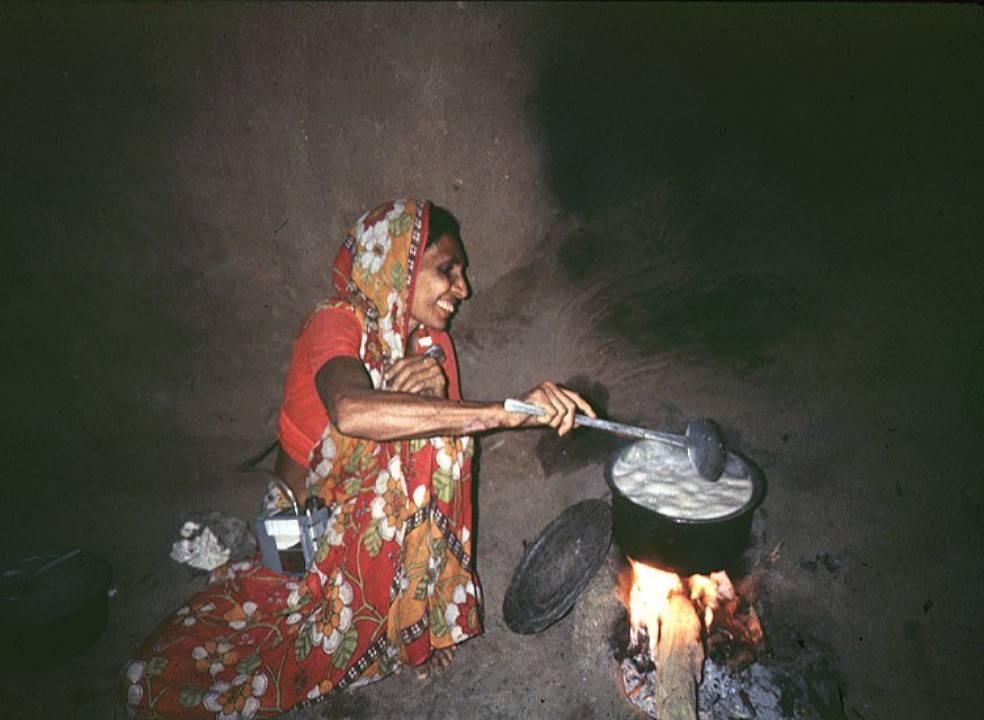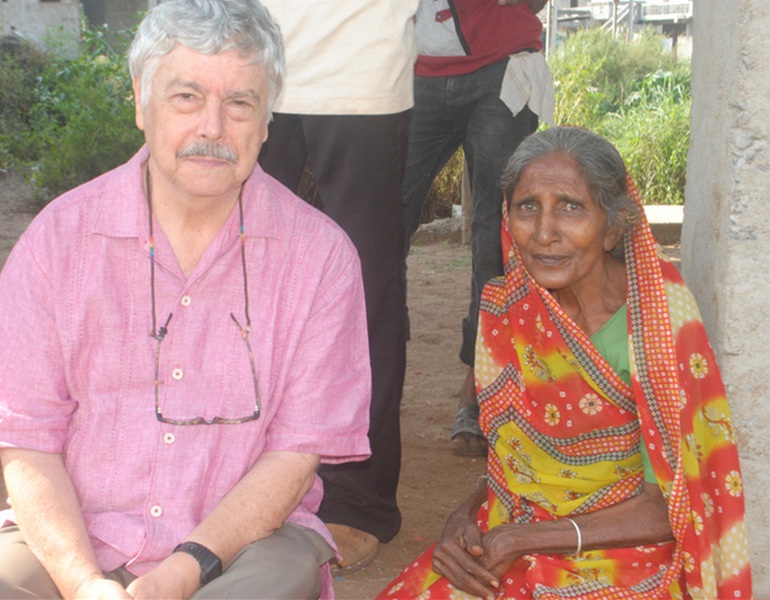Prof. Kirk Smith of UC Berkeley is currently in India as a Fulbright-Nehru Distinguished Chair. Kirk’s Fulbright project involves working with Indian colleagues to develop the technical parameters of a global innovation prize for clean cookstoves and a project for a major intervention trial within antenatal care systems. Kirk’s work in India spans over three decades.
In 1981, Professor Kirk Smith and his Indian colleagues conducted the first measurements ever done of the air pollution exposures from cooking over open biomass cookstoves. A couple of weeks ago, with his family, Kirk went back to the four villages in Gujarat to see if they could find any of the women they had worked with long ago. They went from village to village with an album of the photos from the old study to see if anyone could identify one of the participants. In particular, Kirk wanted to find the first woman they had worked with, whose photo he always shows in his lectures -- see the top photo below.
Believe it or not, they found her! Diwaliben Solanki is now 70 years old and a bit frail physically but clearly remembers the study and that she was the first in the village to wear the equipment. Kirk told her that her photo had been seen by millions of people around the world and that hundreds of additional studies like the first one had been done since 1981. It was a bit emotional for both of them, as one can imagine.
Although there were some noticeable change in the villages - reliable electricity, cell phones, TV sat dishes, a few refrigerators and LPG stoves, a pressure cooker in every house, and a larger fraction of "pucca" housing and schools -- made of permanent materials -- much had not changed, including the fact that nearly but not all households still used open biomass chullahs for at least part of their cooking. Memories varied, but 3-5 "improved" stove programs had swept through the villages since the 1970s (they had evaluated one in their first study) but no one could think of any improved stoves that were still in existence, let alone being used.
Today, India has about 700 million people who rely primarily on open chullahs for cooking. In 1981 when they did their first study, there were about 700 million people in the entire country! Clearly, very little progress has been made in terms of the absolute health burden from household air pollution in India, which has recently been estimated at about one million premature deaths annually, the largest single health risk factor found for Indian women and girls.
Kirk and his family gave Diwaliben and the one other woman they found from the original study (or rather their daughters in law who do most of the cooking now) the cleanest stove in the world as gratitude for their participation long ago. He also gave Diwaliben a large version of the old photo.
In case of interest, the paper from the original study can be downloaded at http://ehs.sph.berkeley.edu/krsmith/?m=1983
Thanks go out to the International Water Management Institute and its excellent staff in Anand for organizing the village visits and to the Sardar Patel Renewable Energy Research Institute in Vallabh Vidyanagar for having facilitated the study in 1981.
Diwaliben Solanki having her air pollution exposure measured in 1981
Kirk Smith with Diwaliben Solanki in October 2013


